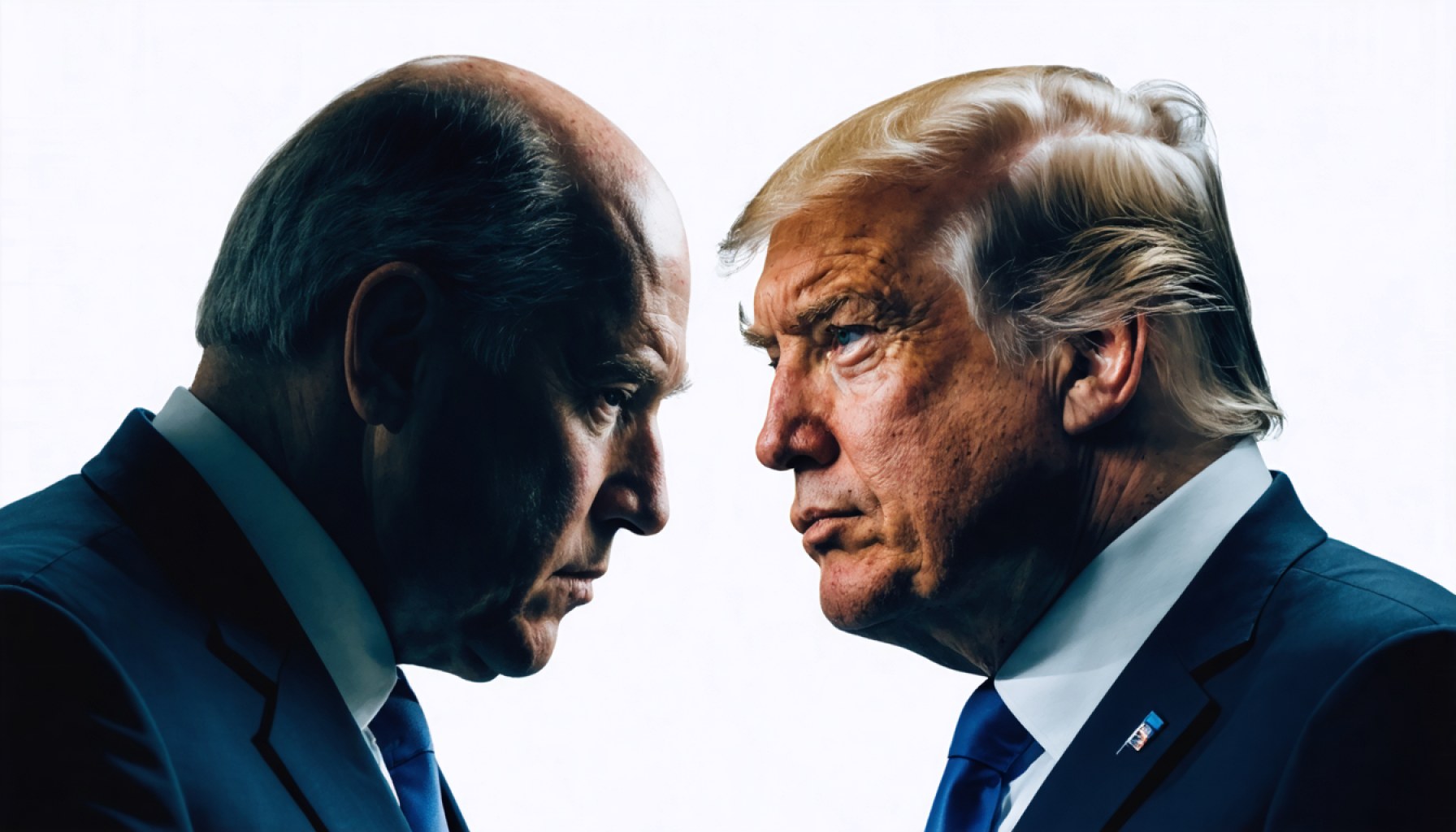- Friedrich Merz and Olaf Scholz, two contrasting figures, are contenders in Germany’s pivotal electoral battle.
- Merz aims to reform his impulsive image, presenting himself as controlled and statesmanlike.
- Scholz, the incumbent chancellor, surprises with assertive rhetoric, shifting his typically reserved demeanor.
- A documentary by Mathis Feldhoff and Andreas Huppert captures the candidates’ campaign journeys across Germany.
- Scholz’s political background includes significant ministerial roles and leadership as Hamburg’s mayor.
- Merz’s experience is rooted in legislative roles and his comeback as CDU leader in 2022.
- The election raises questions about Merz’s ability to secure a long-elusive victory and Scholz’s potential to strengthen his fragile coalition government.
- The contest highlights their differing approaches and unwavering determination to shape Germany’s future.
The political landscape of Germany braces for change as two contrasting figures, Friedrich Merz and Olaf Scholz, vie for leadership in a gripping electoral battle. Merz, chosen as the Union’s torchbearer, steps into the spotlight with determination to shed his impatient, impulsive image. Scholz, the current, often criticized chancellor, emerges from his reserved demeanor, surprising many with a newfound edge and uncharacteristically sharp rhetoric.
Under the camera’s watchful eye, Mathis Feldhoff and Andreas Huppert document this journey in their compelling film, capturing the evolution of both candidates as they traverse the German republic amidst the fervor of campaigning. The camera unveils the day-to-day vigor and strategy, one moment framing Merz as he navigates through a controlled, statesmanlike presentation, the next capturing Scholz as he strikes with clarity, hoping to shake free from his reputation.
Beneath the surface lies a stark contrast in political pedigree. Scholz’s resume boasts a robust tapestry of ministerial roles within Angela Merkel’s governments and leadership as Hamburg’s mayor, while Merz, despite a notable comeback in 2022 as CDU leader, brings primarily legislative experience from his stints in the Bundestag and beyond.
This political saga raises critical questions: Can Merz sustain his lead in the polls and secure a victory that has eluded him before? Can Scholz defy his critics and revive his fortunes as the chancellor of a fragile coalition? Above all, this duel highlights the divergent paths two men take in their quest to define Germany’s future, each driven by an unyielding conviction in the face of skepticism.
Germany’s Political Shake-Up: The Battle Between Merz and Scholz Unveiled
Features, Specs & Pricing of Political Strategies
In the complex political arena of Germany, Friedrich Merz, leader of the Christian Democratic Union (CDU), and Olaf Scholz, the reigning Chancellor representing the Social Democratic Party (SPD), stand as pivotal figures vying for leadership in the upcoming elections. Understanding their political strategies is critical to assessing their potential impact on Germany’s future.
Friedrich Merz’s Approach:
– Reputation Management: Merz aims to overcome his impatient and impulsive image by demonstrating a calm and controlled leadership style.
– Policy Proposals: His focus on economic reforms, tax cuts, and policies that encourage business growth resonates with conservative voters.
– Legislative Experience: Merz leverages his legislative background, including leadership roles in the Bundestag, to project a vision of stability and experience.
Olaf Scholz’s Strategy:
– Defensive Governance: As Chancellor, Scholz faces the challenge of leading a fragile coalition government. His experience as vice-chancellor and various ministerial roles within Merkel’s regimes provides a solid foundation for governance.
– Progressive Reforms: Scholz’s policy proposals often emphasize social welfare improvements, climate change initiatives, and digitalization, setting him apart as a progressive choice.
– Public Image: Recent efforts to toughen his rhetoric and connect emotionally with voters seek to rid him of a reserved public persona.
Real-World Use Cases & Market Forecasts
As Germany stands as Europe’s largest economy, the political direction set by either leader has ramifications across global markets. Key sectors likely to be impacted include:
– Automobile Industry: Policy shifts toward sustainability will significantly affect Germany’s car manufacturing industry, a backbone of the economy.
– Renewable Energy: Both candidates stress a green transition, but execution strategies will vary, influencing Germany’s investment in renewable technologies.
– Tech and Innovation: The digitalization agendas proposed, particularly by Scholz, could steer Germany toward becoming a tech powerhouse.
Reviews & Comparisons
Analyzing historical performances, reviews of Merz and Scholz highlight contrasting leadership styles. Scholz is praised for his crisis management during the COVID-19 pandemic, while Merz garners attention for his economic insights and strategic long-term policies.
Controversies & Limitations
– Merz’s Challenges: Critics highlight potential divisiveness due to Merz’s conservative stances and past policy positions that may not resonate with younger, liberal voters.
– Scholz’s Hurdles: Scholz’s leadership in a coalition government is often seen as cumbersome, with critics pointing to slow decision-making and indecisive moments.
Pros & Cons Overview
Pros for Merz:
– Economic expertise
– Legislative experience
– Business-friendly policies
Cons for Merz:
– Perceived impulsiveness
– Controversial past proposals
Pros for Scholz:
– Proven governance record
– Focus on social issues
– Progressive agenda
Cons for Scholz:
– Coalition constraints
– Reserved public image
Actionable Recommendations & Quick Tips
– For Merz Supporters: Engage in grassroots campaigns to highlight Merz’s economic policies and connect with undecided voters who value economic stability.
– For Scholz Advocates: Focus on his track record in crisis management to win over skeptics and emphasize his coalition’s accomplishments.
For more information about German politics, visit the official sites of the CDA and the SPD.
Stay informed on each candidate’s evolving policies as they continue to address Germany’s intricate economic and social challenges. Through informed choice, you contribute to shaping Germany’s future trajectory.
